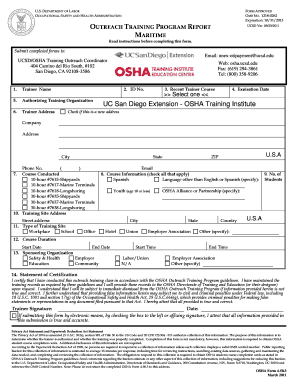
The person obtaining the consent signs and dates the IRB-approved study document. The participant signs and dates the translated short form and the translated "Experimental Bill of Right". The following signatures are required if the potential participant agrees to enroll in the study: The purpose of the witness is generally to attest to the voluntariness of the subject's consent and the adequacy of the consent process by ensuring that the information was accurately conveyed and that the subject's questions were answered. The witness should be an impartial third party, not otherwise connected with the clinical investigation (for example, clinical staff not involved in the research or a patient advocate) and not be the person obtaining the consent. The witness is an adult who is conversant in the language of the presentation. Note that the interpreter may also serve as the witness only if the interpreter can sign the appropriate documents (see below). The qualified interpreter may be present physically or by some other means, for example by phone or video conference. A family member or close personal friend of the participant is not considered a qualified interpreter. In addition, the following persons need to be present at the time short form consent is being obtained: These four documents require IRB approval before using the short form to obtain consent. These procedures should also address the ongoing process of "informed" consent and the need for providing continued, qualified interpretive services. If the procedures for using the short form were not previously approved, a revised Research Plan to clearly and specifically outline the procedures that will be used to obtain consent using this method. The UCSD "Experimental Subject's Bill of Right" has been translated into the following languages: A copy of the UCSD "Experimental Subject's Bill of Right" translated into the language in which the subject is fluent. A copy of the IRB-approved study consent (long form). The UCSD IRB-approved English short form has been translated into the following languages: A copy of the IRB-approved English short form translated into the language in which the subject is fluent. When the short form consent method is used, there will be an impartial witness to the oral presentation, and the following four documents are required: A "short form" written consent document stating that the elements of informed consent as required above have been presented orally to the subject or the subject's legally authorized representative. This form may be read to the subject or the subject's legally authorized representative, but, in any event, the investigator will give either the subject or the representative adequate opportunity to read it and ask questions before it is signed or A written consent document that embodies the elements of informed consent described in 21 CFR 50.25 and 45 CFR 46.116. Procedures for the Use of the Short Form ConsentĪs noted in the UCSD IRB Standard Operating Policies and Procedures, the written consent form may be either of the following: Expanded Access Consent Form template - RCHSD | MS Word.  Expanded Access Consent Form template | MS Word. Exempt Information Sheet template | MS Word. Adult/Parent Permission Consent Form template | MS Word.
Expanded Access Consent Form template | MS Word. Exempt Information Sheet template | MS Word. Adult/Parent Permission Consent Form template | MS Word. 
Social/Behavioral/Educational Research (SBER) Protocol | MS Word.Biomedical Interventional Protocol for clinical trials research (based on NIH template) | MS Wordīiomedical Non-Interventional Protocol for clinical research | MS Word








